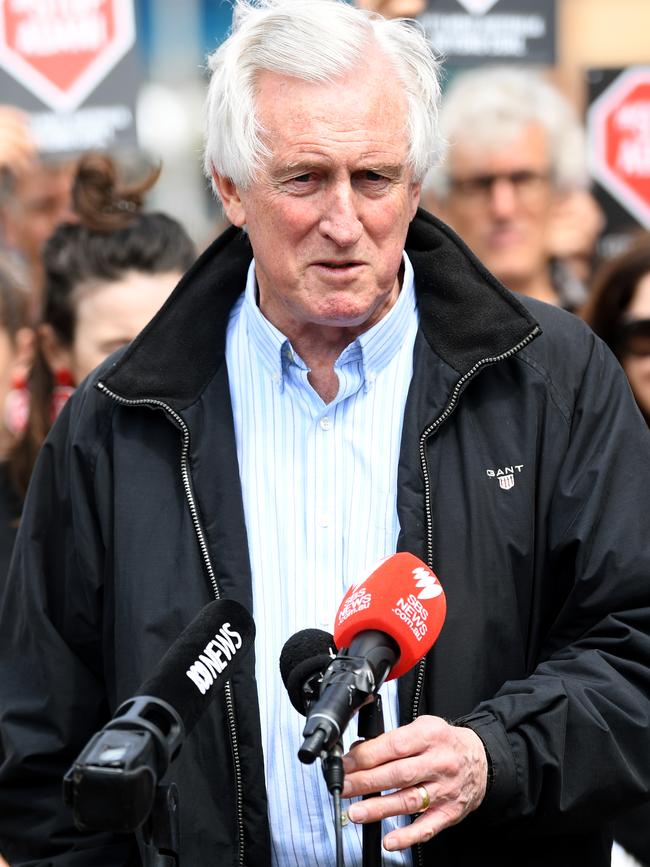Indigenous ‘Voice’ will do nothing more than divide Australia
The urban guerillas of the left want a taxpayer-funded ‘Voice’ for those who identify as indigenous but this would only lead to division, writes Piers Akerman.
Left-wing US folk singer Pete Seeger sang the question: “When will they ever learn, when will they ever learn?” in 1955 and now the leftist grandchildren of his generation are demonstrating that the answer is never.
Having lost the global warming poll — except for the token election of GetUp’s go-to-girl Zali Steggall — the urban guerillas of the left are now touting a campaign for yet another divisive element in national affairs — a taxpayer-funded “Voice” for those who identify as indigenous.
The idea is this Voice will give advice to parliament about indigenous issues and have its say on laws that affect indigenous Australians. But the Constitution would need to be changed to create this Voice, requiring a referendum.

The idea was rejected by Malcolm Turnbull’s government in 2017, when it warned: “A constitutionally enshrined additional representative assembly which only indigenous Australians could vote for or serve in is inconsistent with the principle that all Australian citizens have equal civic rights … it would inevitably become seen as a third chamber of parliament.”
Turnbull, the former hero of the luvvies, went further, saying it would never gain the support of the public.
MORE FROM PIERS AKERMAN
Albo rewrites personal history to help political prospects
Shorten is a pygmy compared to Hawke, Whitlam
Mob roams the landscape in a quest for outrage
New Aboriginal Affairs Minister Ken Wyatt told The Australian this week that there needed to be extensive consultation with Aboriginal groups about a “definitional understanding of the Voice” before a referendum was considered.
But that isn’t stopping those who thought Labor had won before last month’s election, and who weepily hold hands for Earth Day, Sorry Day and the Mardi Gras, from pushing it forward again.
The problems faced by many Aboriginal Australians are readily apparent in regional Australia.
The $33 billion spent annually on services for indigenous Australians is more than $45,000 per indigenous Australian, or slightly more than double the amount spent on other Australians.
Peter Harris, chairman of the Productivity Commission’s 2017 report, emphasised that it was beyond the scope of the commission to understand the adequacy, effectiveness and efficiency of this expenditure.
The appalling statistics relating to indigenous health, education and, above all, sexual abuse of children and domestic violence, underscore his understatement.

Just last weekend, a report in The Australian quoted a 2013 Queensland study which found sex crimes against children in the Aurukun community were reported at a rate 6.6 times the Queensland norm. The incidence of sexually transmitted diseases among children and underage teens was 56 times the state average and involved the infection of 29 children younger than 10.
The rate of indigenous incarceration is beyond shocking.
According to the Australian Bureau of Statistics, in 2016-17, the ratio of age-standardised rates for indigenous offenders were five times the non-indigenous offender rate in both NSW and Queensland and almost nine times for the Northern Territory.
The stories of youth suicide are absolutely heartbreaking.

But the way to end this, according to John Hewson, the Red Bandanaman and the kumbaya crowd, reading from the script provided by the Aboriginal industry and its supporters at Nine Media, is through support for the Voice (and not Johnny Farnham, though the idea behind it is equally aged).
There is a darker agenda for the Voice proponents in Australia and it goes to the destruction of the nation and the civilising culture that has existed since the First Fleet arrived on January 26, 1788.
The narrative behind the Voice is tied with those urban elites who are opposed to Western culture and who see Australia Day as Invasion Day.
Footballer Johnathan Thurston told Nine Media that his school lessons about Captain Cook and Kurnell, the First Fleet and the foreigners who settled in Australia never really sat right with him.
“That’s what we were taught at school,” the NRL legend told Nine Media.
“When I went to school, while we celebrated NAIDOC week we didn’t really learn about the history of Australia or the Aboriginal and Torres Strait Islander culture.”
The Voice, which sprang from the so-called Uluru Statement from the Heart (and even the word Uluru is the subject of dispute among people living around Ayers Rock, as it has relevance to one specific family there) can do nothing but divide Australian against Australian.
Its proponents have forgotten the manner in which ATSIC, the last in a long line of attempts to provide a forum for indigenous Australians, collapsed in a sea of corruption with no discernible positive legacy for those it was meant to serve.
When will they ever learn? Never.


